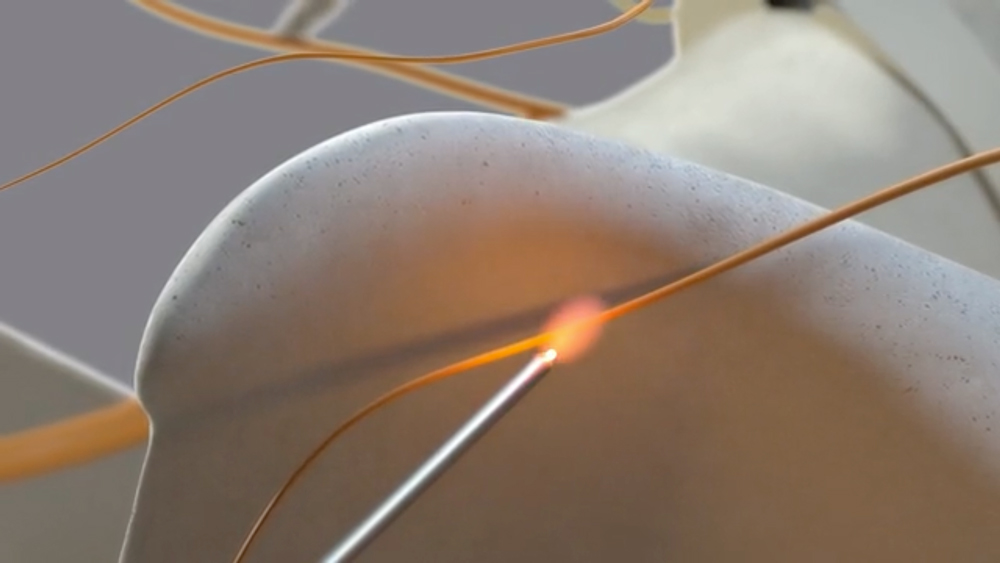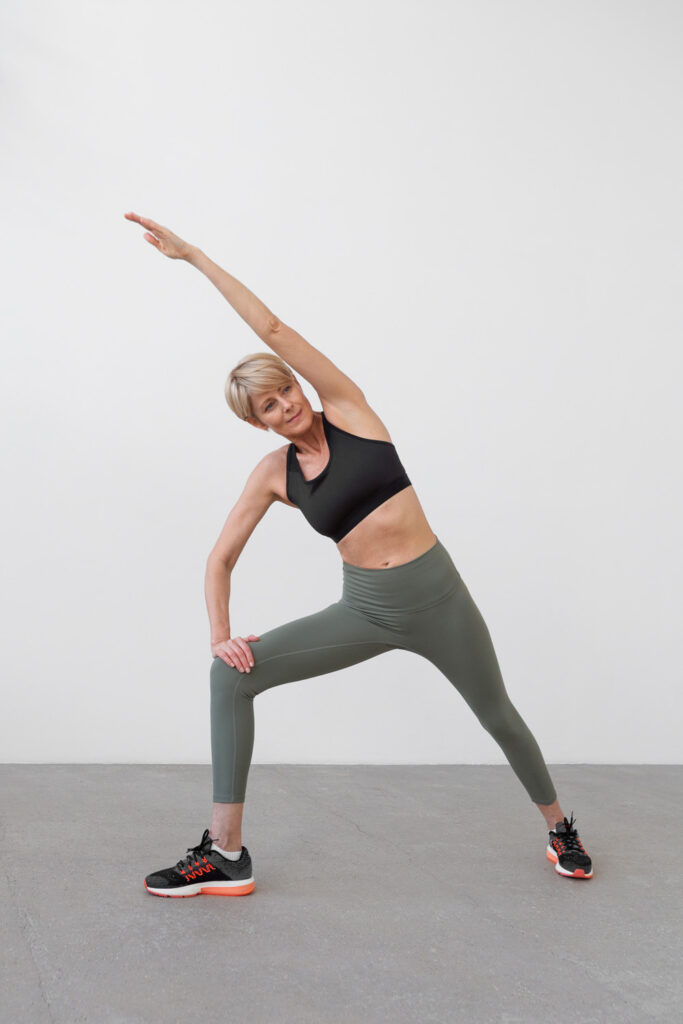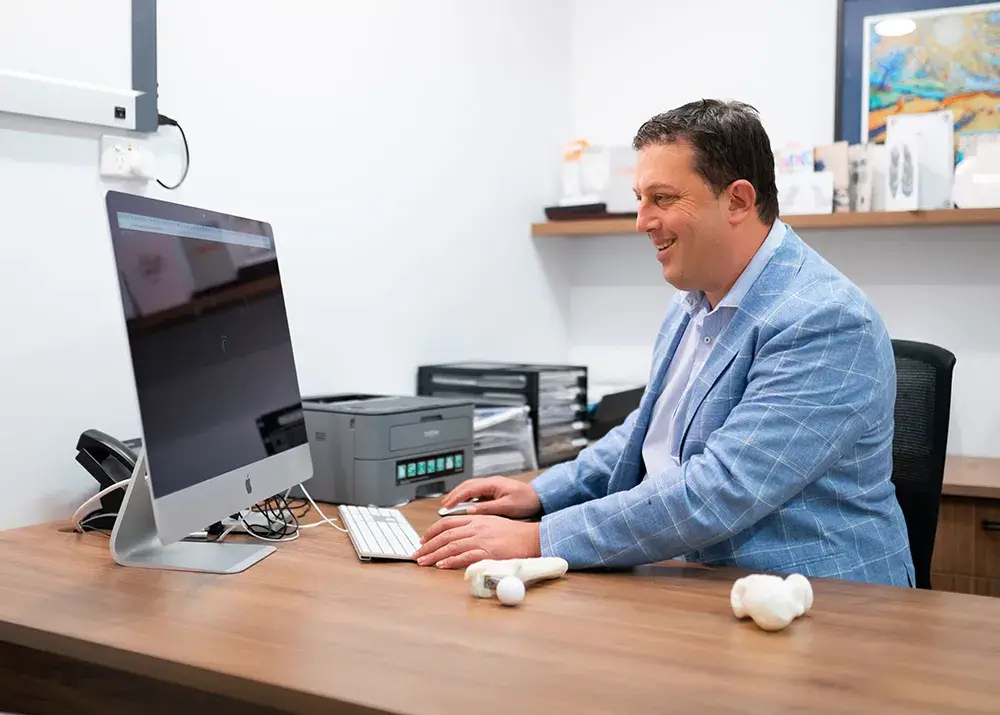COOLIEF* Cooled Radiofrequency Ablation
Innovative pain management system
Long-term pain relief
COOLIEF* is a pain management system which uses radiofrequency ablation to deactivate the nerves responsible for sending pain signals to the brain. It uses water-cooled technology, allowing for a larger treatment area and a higher chance of targeting pain-causing nerves. Clinically proven, COOLIEF* provides long-term pain relief, improves physical functionality, and reduces the need for medication.
If you’re not ready for surgery and want to avoid the side effects of opioids, COOLIEF* offers a minimally invasive solution for chronic pain relief. It is the first and only FDA-cleared radiofrequency treatment for osteoarthritis knee pain.


The benefits of COOLIEF*
- Long-term Pain Relief: Clinical studies show that some patients experience significant pain reduction for up to 24 months.
- Improved Mobility: COOLIEF* has been proven to enhance physical function alongside providing pain relief for up to 24 months.
- Quick Recovery Time: As a minimally invasive procedure, most patients feel pain relief within 1-2 weeks and can return to their daily activities much sooner than with surgery.
- No Opioid Medication Needed: Post-procedure discomfort can usually be managed with over-the-counter medication, avoiding the need for opioids.
- Short Hospital Stay: This treatment requires only light anaesthesia, so you can often go home shortly after the procedure.
- No Incision: Unlike surgery, COOLIEF* involves no incisions, making it a less invasive option.
Frequently asked questions
The best type of hip replacement for you depends on factors like your age, activity level, overall health, and specific hip condition, typically determined in consultation with your orthopaedic surgeon.
Mr Freedman utilises various enhanced recovery mechanisms so that you will be dressed in your normal clothes (and not a hospital gown) and up and walking the same day as your surgery. Patients are often safe for discharge Day 1 after surgery. However, there are some benefits of being in hospital a bit longer such as access to inpatient physiotherapy services and also being away from home responsibilities allows you to focus on your rehab and recovery. Therefore, Mr Freedman will often advise you not to rush home too quickly but rather to spend 2-3 nights in hospital so that you are confident and comfortable at discharge.
Mr Freedman uses a variety of implants, depending on individual patient anatomy, age and other considerations. The prostheses used most frequently are designed and manufactured in Switzerland. Mr Freedmam often favours ceramic bearing surfaces. These ceramic implants are manufactured in Germany. Just as the Swiss and Germans engineer and manufacture great watches and fantastic cars, they also make excellent hip and knee prostheses.
Mr Freedman completed University (Medical School) at the University of Melbourne and then Surgery and Orthopaedic Surgery training in Victoria, through the highly regarded Australian Orthopaedic Associations’s Victorian Training Program. After completing his orthopaedic training, Mr Freedman undertook two international orthopaedic fellowships. The first of these were with Professor Damian Griffin in the UK (University Hospital Coventry and Warwickshire) and the 2nd was with Dr Frederic Laude at Clinique du Sport in Paris, France.
No. It is fairly popular for surgeons to undertake sub-specialist fellowships but this is not a requirement. Some surgeons will enter practice straight from graduating the orthopaedic training program. Many surgeons who do undertake fellowships will do so locally in their home state or may travel interstate in Australia. Fellowships are often very poorly paid and so many doctors, with considerable debts from medical school and surgery training will not have the means to travel overseas for fellowship training. Mr Freedman was very fortunate to receive two scholarships (1. Arthritis Australia and 2. European Federation of Orthopaedics and Trauma) which enabled him to travel overseas twice for his international fellowship training.
Our locations
- Main Practice Consulting Rooms
- Other Clinic Consultations
- Surgery Operating locations
- Telehealth Consultations
Our main practice consulting rooms are located at:
Mr Ilan Freedman
Suite 2, Monash House Private Hospital
271 Clayton Road, Clayton VIC 3168.
Driving: Monash House Private Hospital is situated on Clayton Rd, across the road from Monash Medical Clinic. Clayton Road is easily accessible form Princes Highway (Dandenong Rd, North Rd or Centre Rd).
Parking: Parking available onsite (paid – inexpensive) and neighbouring streets (free)
Public transport: 3 minutes walk from Clayton Railway Station. Bus stop directly outside.
Location in the hospital: We are located on the ground floor, opposite the hospital coffee shop and next door to Capital Radiology
Mr Freedman also consults regularly at the following clinics.
Mulgrave Private Hospital Consulting Suites
Address: Blanton Dr, Mulgrave VIC 3170
Parking: Inexpensive onsite parking
The Bays Private Hospital Consulting Suites – Mornington
Address: Vale St, Mornington, 3931
Parking: Free Parking Available on site
Location: We are located in Suite 15 at The Bays.
Warragul
Address: 33 Victoria Street, Warragul 3820
Parking: Free Street Parking
Maryvale Private Hospital
Address: 286 Maryvale Rd, Morwell, 3840
Parking: Free Street Parking
Bay Street Specialist Centre
Address: Suite 4, 214 Bay Street, Brighton VIC 3186
Parking: Free Street Parking
Mr Freedman’s surgery operating locations are:
Mulgrave Private Hospital
Address: Cnr Police Rd & Gladstone Rd, Mulgrave, 3170
The Bays Private Hospital, Mornington
Address: 262 Main St, Mornington VIC 3931
Monash House Private Hospital
Address: 271 Clayton Rd, Clayton VIC 3168
Maryvale Private Hospital
Address: 286 Maryvale Rd, Morwell VIC 3840
Telehealth Consultation
We are pleased to offer telehealth appointments, allowing you to consult with Mr Freedman from the comfort of your home. Whether for a follow-up, pre-surgical consultation, or orthopaedic advice, our telehealth services provide expert care without the need to travel. Using secure and easy-to-use technology, our telehealth appointments fit seamlessly into your schedule, ensuring the same high standard of care as an in-person visit.

Get back to life sooner
We understand that seeking care for your hip or knee condition is an important decision, and we are here to provide you with the support and expertise you need.
Please take a moment to fill out the following information so that we can better understand your needs and how we can assist you.
